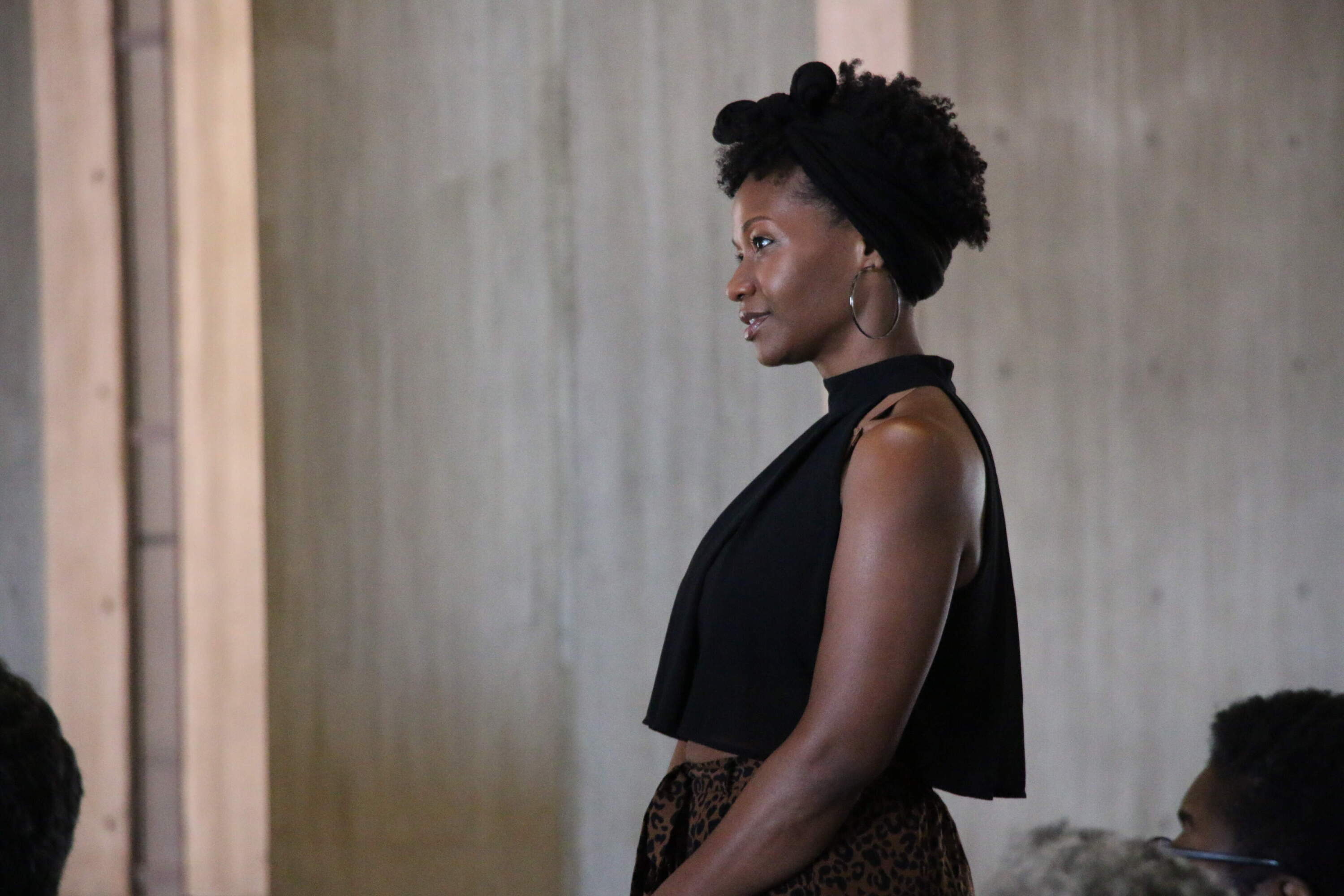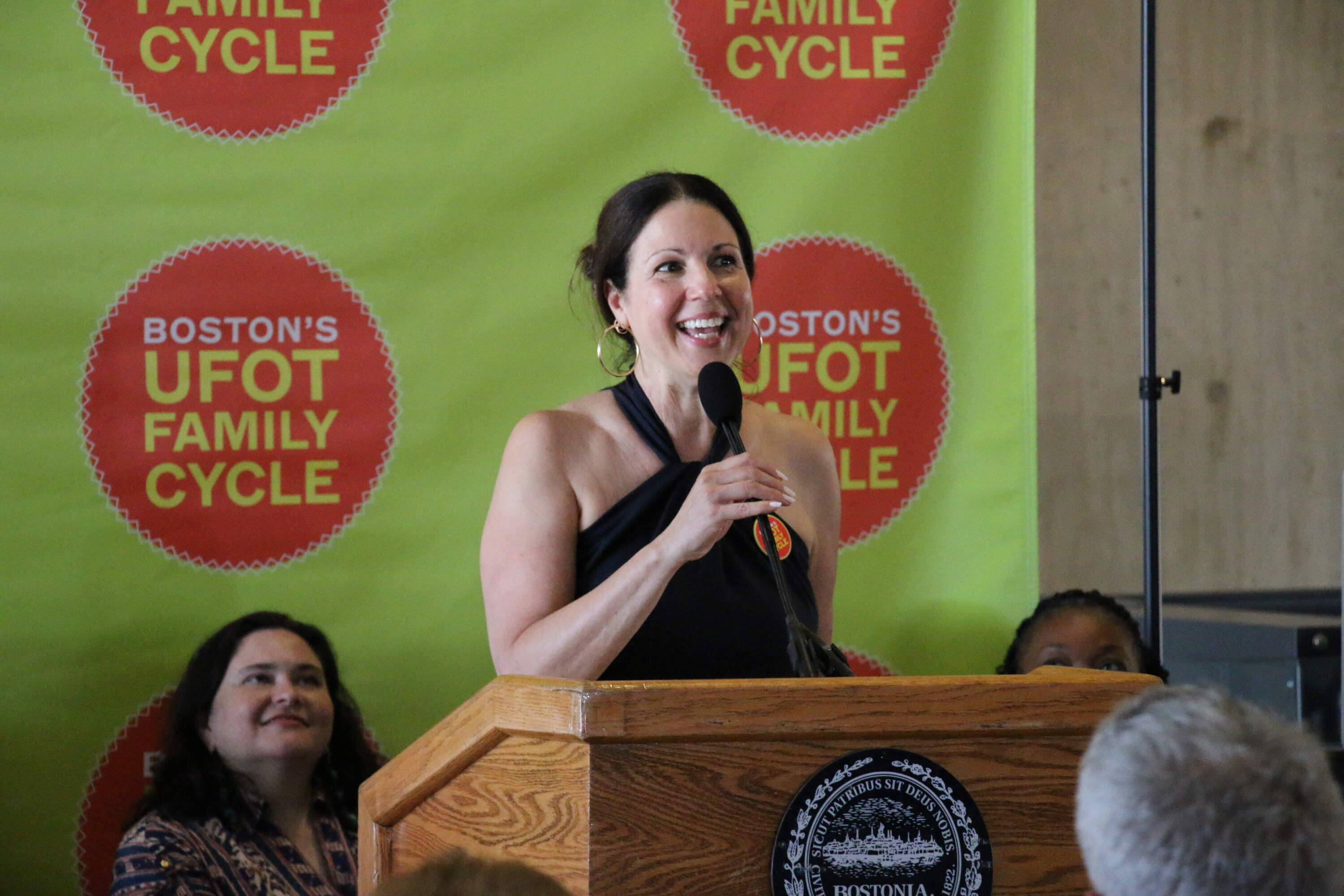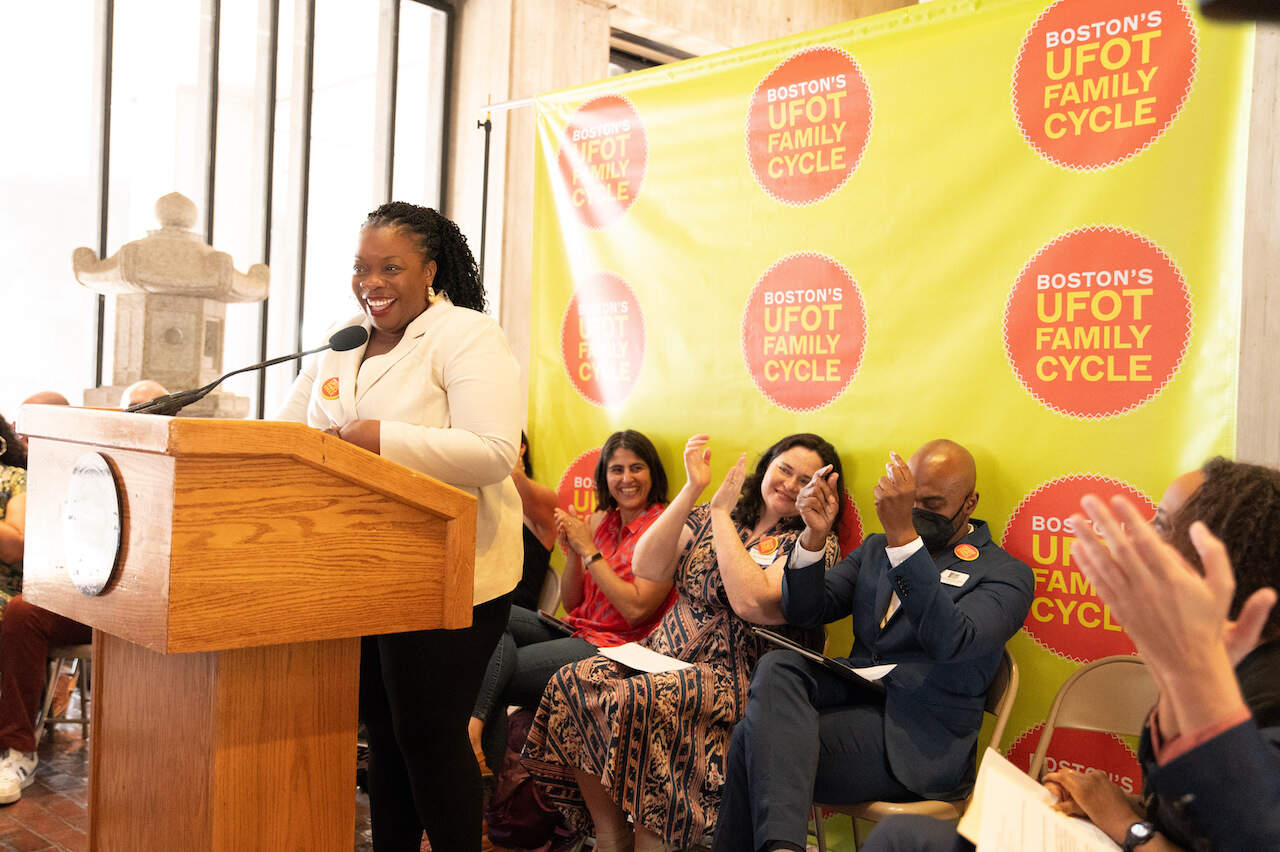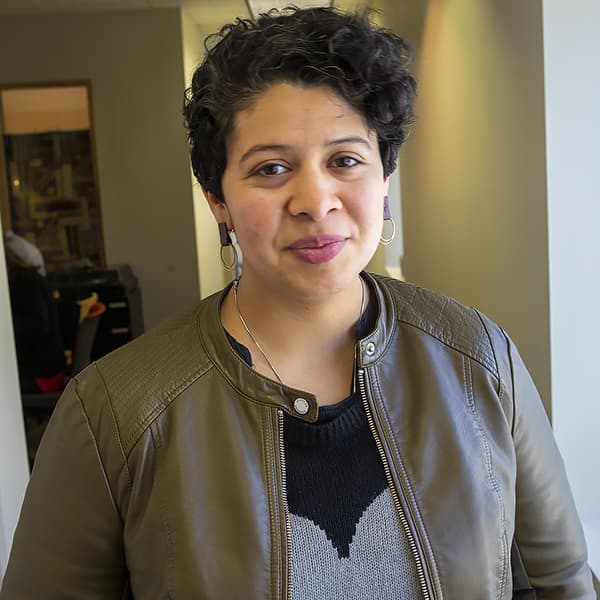Advertisement
Nine-play cycle weaving the saga of a Nigerian American family launches in the fall

In the din of Boston City Hall’s main lobby, playwright Mfoniso Udofia’s mother took her daughter’s face into her hands, beaming. Around them, a celebration of the world her daughter built about the lives of a Nigerian American family.
“My mom is really just proud. Because when she came to this country, she [was just] building and then she's got a kid who's like, ‘I'm going to be an artist,’” Udofia said.
This week, the Huntington Theatre announced one of its most ambitious projects ever alongside more than two dozen collaborative partners. Over the next two years, the company will produce nine plays by Udofia known as the Ufot Family Cycle on stages and venues across Massachusetts. Unlike other plays, which end when the curtains fall, Udofia’s plays paint a portrait of a family tree, telling stories of three generations. This ancestral lineage weaves their lives together over nine parts.
“These plays are a reinvention of the narrow immigrant narratives we have grown accustomed to,” said Huntington Theatre artistic director Loretta Greco. “They are led by an intrepid matriarch, Abasiama Ufot, and are rich explorations of family, a place where all the messy, complicated business of being human meets cultural and generational intersectionality with big-hearted honesty, bravery, and humor.”

Greco said there's already an investment of about $2 million on Huntington's part between these productions, the development work and work-to-date. They intend to raise $1.5 million to support the remaining seven pieces, productions and activations. She said they’ve raised a little over $500,000 to date.
Four of Udofia’s plays, “Sojourners,” “runboyrun,” “Her Portmanteau,” and “In Old Age” have been performed previously, but five of them are brand new works that have not yet been staged. Partners include the City of Boston, ArtsEmerson, the Central Square Theater, Wellesley College, Boston Arts Academy and the Front Porch Arts Collective.
“No one play is alike in its themes, genre, or form,” Greco continued. “But like siblings, their DNA is undeniable. Each play can stand alone with great integrity, but why would you only want to see one?”

Readings of “runboyrun” will be held at the Boston Public Library’s Roxbury and Central branch in spring of 2025. It will also be produced as an audio play adaptation by “Next Chapter Podcasts” in partnership with GBH.
The grand finale will come in the form of a folk opera, “Adiaha and Clora Snatch Joy.” Among her many talents, Udofia is also a trained opera singer. The Huntington will partner with Boston Lyric Opera for this final work. It will be a part of Embrace Boston’s Everyone 250 Festival during the summer of 2026, said Bradley Vernatter, general director and CEO with Boston Lyric Opera.
“Composer Nehemiah Luckett’s music blends together sacred, secular and choral influence,” he said. “Opera brings together people and communities through music and song, storytelling, dance, spoken word, visual art, design, every artistic and performance art discipline that one could imagine. So it feels fitting that this highly collaborative piece is the culminating work for this tremendous collaboration across our city.”

That is where it ends, at least for now. But where this vast exploration begins is the place many origin stories start with migration to a new land by Nigerian newlyweds in Udofia’s play, “Sojourners,” which will be shown at the Huntington on stage in the fall. This couple is the first generation, the first to navigate these uncharted waters of belonging, race, identity, culture and pave the way for the next Ufot generation.
The Huntington has committed to free pop-up performances of “Sojourners” in neighborhoods such as ZUMIX in East Boston, Roxbury Community College in Roxbury, and Hyde Park. These communities were chosen carefully, as East Boston has the highest percentage of foreign-born residents of any Boston neighborhood, Hyde Park is home to the Yoruba community of Massachusetts and Roxbury is a center of Black life and experience in Boston, according to organizers at the Huntington.
There will also be productions held at the Prior Performing Arts Center at College of the Holy Cross in Worcester to bring the production to Central Massachusetts, where Udofia grew up and where one in five Worcester residents are immigrants.
Advertisement
Though the stories aren’t autobiographical, Udofia’s own parents first arrived in Texas from Nigeria in the 1970s. Their experiences inform her plays.
“They landed in Southbridge and they had a lot of dreams for us, their children,” she said. “My mother, who is one of my lights, always encouraged us to go onwards, onwards and up.”
Her mother was a biologist; her father, a scholar of West African studies. The first play she wrote, “The Grove” made her realize she needed distance from experiences that felt so familiar.
“I didn't have great sight so I needed to start lifting up and imagining,” she said. “And in the lift up and the imagine, with big questions like, ‘Why did Nigerians come here in the first place?’”
These were questions that had been sitting in her belly for a long time. Questions such as: “What do you gain or lose as an African immigrant to America? How do you retain your culture in a country that does not always hold you? Can you learn to love a country you would never imagine you'd stay within? And if you can't go back home again, what of this country do you admire? Can you grow enough of that to make a life?”
It was at Wellesley College, Udofia found inspiration watching a play at the Huntington, “Gem of the Ocean,” one of the ten plays in playwright August Wilson’s American Century Cycle. Now, Wellesley Repertory Theatre will perform “Lifted,” one of the plays of Udofia’s cycle planned for winter of 2026. The play will use dance and movement to explore ideas of plagiarism and ownership of ideas and of thought.
Like nebulae give birth to new stars, these complexities birthed three plays.
Then five. Then nine. There’s something special about three cycles, she said.
“If I am honest, there’s always more to write,” the playwright added.
Both Greco and Udofia call this cycle a bit of a “test balloon” or grand experiment. Two years ago, they sat together on bar stools at Bootleg Special in Boston and dreamed.
“These are the things I remember about our conversation,” Greco said. “There would be as much Boston talent as possible, and we would find a way to support all the participants with the particular extraordinary elements they would need to achieve excellence. Things like native speakers of Ibibio, dialect support, movement support…we were in lockstep that these plays would be directed by African-American or African women.”
In those days, two of the plays in the Ufot Cycle were in draft form, she said. Three had titles and intentions, but no actual pages yet, she said. Two years later, there's only one play left to write, Greco said.
